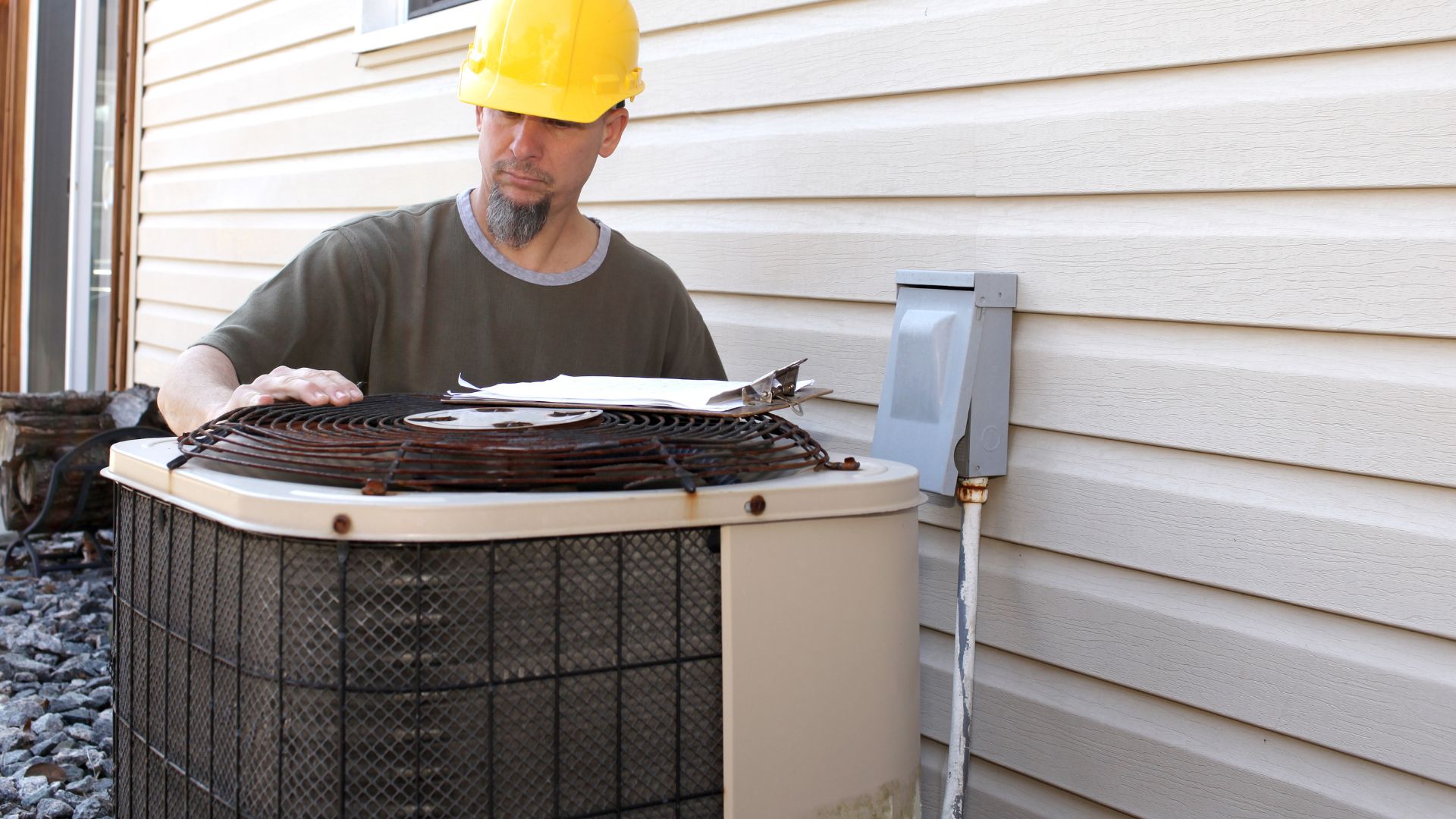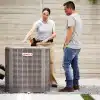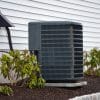Picture this: it’s a hot summer day and you’re eagerly waiting for your air conditioner to cool down your room. But instead of feeling relieved, you notice that something is wrong – your AC isn’t releasing any water.
Don’t panic just yet! This common problem can be caused by various reasons, but fortunately, most of them are easy to fix.
In this article, Orzech Heating & Cooling will guide you through the possible causes and solutions for when your AC stops releasing water so that you can get back to enjoying a comfortable indoor temperature in no time.
What is the problem?
The problem of an AC not releasing water may seem minor, but it can indicate bigger issues with your cooling system. Normally, air conditioners collect moisture from the air and release it outside through a drain pipe or tray. If you notice that there’s no water dripping from your system, it could be due to several reasons.
One of the most common causes is a clogged condensate drain line which prevents water from flowing freely out of the unit. This can cause excess moisture to accumulate in the AC and lead to mould growth or even electrical damage.
Another possible reason for this issue is a malfunctioning float switch that’s designed to turn off the AC if there’s too much water in its collection tray. When this switch fails, it may prevent any further condensation from being released.
In some cases, low refrigerant levels could also affect your AC’s ability to release water properly since they lower the pressure inside the unit causing moisture removal problems.
Why is this happening?
AC units are designed to cool down our homes, but what happens when they start acting up and not releasing water? This can be a frustrating problem, especially during the hot summer months. There could be several reasons why your AC unit is not releasing water.
One reason can be that there is a clog in the drain line, which prevents the moisture from draining properly. Another possibility is that there’s an issue with the condensate pump responsible for pumping out excess moisture. Additionally, if your air filter isn’t replaced regularly, it can become dirty and clogged causing airflow issues leading to moist conditions inside the unit.
The cause may also be related to low refrigerant levels or faulty parts within your system like motors or pumps which will result in poor cooling performance and ultimately lead to no release of water from the AC.
Regardless of what caused this problem in your AC unit, it’s always best to consult a professional HVAC technician who can diagnose and repair any underlying issues before they worsen.
How to fix the problem
If your AC is not releasing water, there are a few things you can try to fix the problem.
1. Check for clogged drain lines
Check if the drain line is clogged or blocked. This is often the main reason why an AC unit stops releasing water. To unclog it, use a wet-dry vacuum to suction out any debris or buildup inside the drain line.
2. Replace your air filter
If that doesn’t work, try cleaning or replacing the air filter in your AC unit. A dirty air filter can also cause problems with water release and hinder proper airflow through your system.
3. Check the condensate pump
Another thing to consider is checking if the condensate pump is functioning properly. If it’s not working correctly, it may need to be replaced by a professional technician.
Make sure that your AC unit has enough refrigerant levels as low refrigerant levels can also cause issues with water release.
AC Maintenance Tips
Maintaining your air conditioner is essential for its longevity and efficiency. Here are some tips to keep it running smoothly.
- Clean or replace the air filter regularly. A dirty filter can cause reduced airflow, leading to poor performance and higher energy bills.
- Keep the outdoor unit free of debris like leaves, grass clippings, and dirt. This can restrict airflow and cause damage to the system’s components.
- Schedule annual maintenance with a professional technician who will check refrigerant levels, clean coils, lubricate moving parts and identify any potential problems before they become costly repairs.
- Use a programmable thermostat to regulate temperature settings when you’re away from home or asleep at night – this will save energy while keeping you comfortable!
- Consider installing ceiling fans in rooms where you spend most of your time – they’ll help circulate cool air throughout the room more efficiently.
By following these simple AC maintenance tips, you’ll not only improve your unit’s performance but also extend its lifespan!
Conclusion
After all, ACs are complex machines and require regular maintenance to keep functioning efficiently. A little bit of care can go a long way in preventing major issues like water leakage. If your AC is not releasing water, it’s important to diagnose the problem early on and take the necessary steps to fix your AC before it turns into a bigger issue.
By following the tips mentioned above and scheduling routine maintenance checks with professionals, you can ensure that your AC serves you well for years to come. Remember, prevention is always better than cure when it comes to appliance repair.



